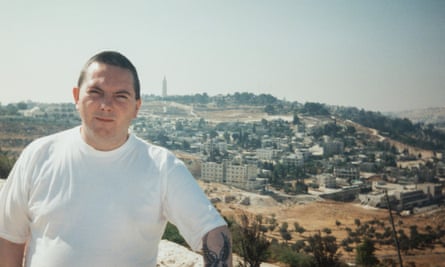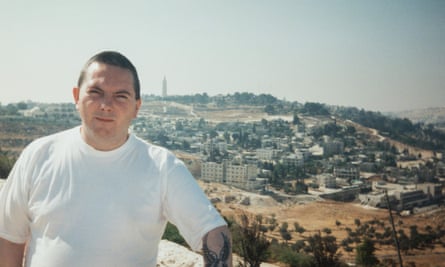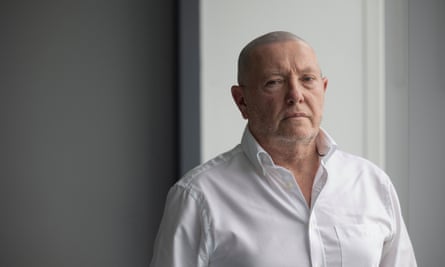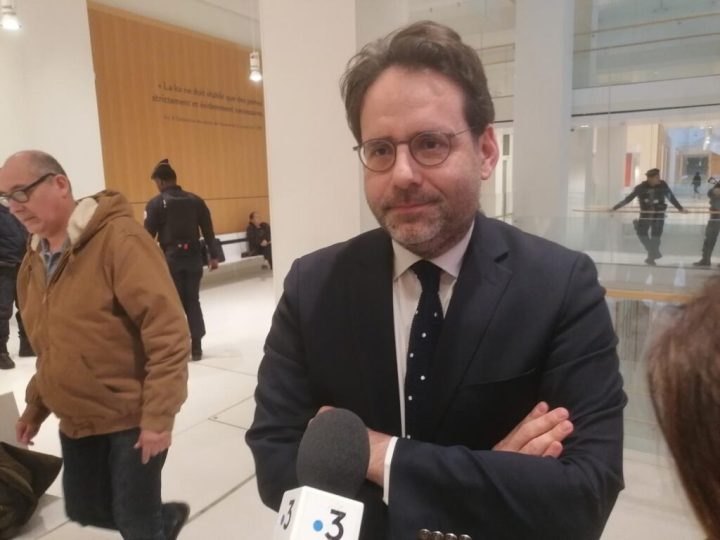
Voilà un papier que notre équipe est heureuse de livrer ici sur notre site. La thématique est « la justice ».
Le titre (‘Excluded from justice’: court prevents family of victim from addressing assailant | Youth justice) en dit long.
Le chroniqueur (présenté sous le nom d’anonymat
) est reconnu comme quelqu’un de sérieux pour plusieurs autres éditoriaux qu’il a publiés sur internet.
La crédibilité est ainsi élevée concernant ce texte.
Sachez que la date d’édition est 2023-07-30 11:12:00.
The brother of a man who died after being assaulted in his own home has said he has been “excluded from justice” after magistrates barred him from court on the grounds that his presence would put the teenage attacker under “undue stress”.
Tom Quigley called on the Ministry of Justice to ensure bereaved relatives are not excluded from the court process after he was prevented from reading out a victim impact statement detailing his devastation at the lonely death of his older brother, David.
David, 69, had a bleed on the brain after he was attacked with his walking stick in his Birkenhead home by a drunken 15-year-old boy last October. Three weeks later, after an eight-day stay in hospital, he was found dead by his brother on the kitchen floor.
“He’d died alone and, judging from the expression on his face, in pain. And I hadn’t been there to comfort him,” said Quigley, 67.
He wanted the boy to understand the hurt he had caused and said he was told by police and prosecutors that he could read the statement out at the boy’s sentencing hearing, which took place this month.
The statement described David’s kindness, including how he would buy joints of meat for those who couldn’t afford a Sunday roast. “He was lovable, a character, a gentle man, a one-off,” Quigley wrote.

He wanted to tell the boy: “No punishment that can be handed down here will undo what happened to my brother. I draw no comfort from any sentence you may be given. Your true punishment is that you’ll have to live with the guilt of this for the rest of your life.”
He planned to say that if David were in court, “he’d have told you he forgave you. His strong Christian beliefs would have led him to that decision”.
But on the sentencing day, Quigley was told that the youth court magistrates had decided not to allow him to attend. His statement was read out by the prosecutor instead.
Members of the public are not normally allowed into youth courts, but magistrates can use their discretion to permit victims and their loved ones to attend.
Quigley was distraught that the boy’s welfare had been placed above his own. “It was to be part of my healing process, my closure,” he said. “But I was disregarded because the offender’s welfare was given priority, not mine. Who was thinking of me?”
He believes he should have been the one to decide if he was strong enough to confront the boy, not the other way around. Ultimately, he said, “the offender was shielded. And I was excluded. Who’s the one being punished here?”
The boy was charged with murder but this was downgraded to grievous bodily harm after a disagreement between medical experts on what had caused David’s death.

The pathologist who carried out the postmortem recorded three causes of death: bronchopneumonia, chronic subdural haematoma and blunt force head injury. But defence experts disagreed, saying it was not certain that the boy’s violence had killed David.
Quigley was left to learn about the boy’s sentencing via media reports. He found it hard to read the defence dismissing the boy’s actions – which began as a drunken garden-hopping incident – as him being “a typical teenage tearaway”.
It was reported that Quigley had been banned from attending the hearing after magistrates ruled his presence would “put the defendant under undue stress”, with his “welfare being paramount”.
The defence lawyer told the magistrates that the boy was doing “really well” after serving 123 days on remand in youth custody. The phrase stuck in Quigley’s throat. “Did anyone ask how I was doing? Am I doing well?” he said. “My voice went unheard. I was totally excluded from the process of justice. This just cannot be right or fair.”
The boy, a first-time offender, was given a 12-month youth referral order, to be served in the community, and fines totalling £146. Quigley has asked to be kept updated of the boy’s progress. “Some good has to come from this episode. And if it does, surely I could be told?” he said.
A Ministry of Justice spokesperson said: “This was an awful crime and our thoughts are with the family of David Quigley. While restrictions are in place to prevent the identification of young offenders, these can be removed at the discretion of the judge.”
A lire sur un thème similaire:
Enseignement de l’allemand/Vocabulaire allemand/La justice,Ouvrage .
Justice et politique : le couple infernal,Clicker Ici . Disponible dans toutes les bonnes bibliothèques de votre département.
Photographie/Personnalités/A/Jean Agélou,A voir et à lire. .

